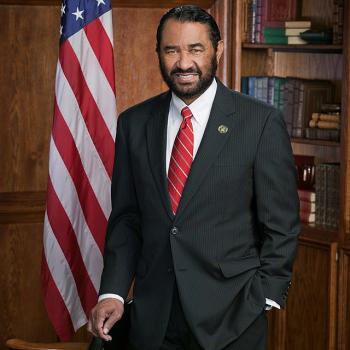Despite a U.S. Supreme Court decision in 1980 that declared posting the Ten Commandments in public schools unconstitutional (Stone v. Graham), attempts to violate the law are still rampant. The New Kensington-Arnold School District in Pennsylvania is being sued for a Ten Commandments monument on school property. In Giles County, Virginia, school administrators recently decided to stop their legal battle to keep the Ten Commandments on a wall in a public high school there. And in other places the Decalogue remains unchallenged.
It is a common assertion among many proponents of displaying the Ten Commandments in schools or on other government property that their motivations aren't religious. They claim that America's legal system is based on these ancient Hebrew tenets (from which they have to choose a version) and that displaying them would be the same as displaying any other historical manuscript. Of course, such claims are easily shown to be sham reasoning, since promotion of their particular religion is their true aim and the Ten Commandments have very little to do with our English Common Law-based legal system.
Some parents lament that their children will somehow end up morally aimless if they aren't exposed to the Ten Commandments while attending school. While moral development is really a natural process of learning right and wrong for which religion is unnecessary, there is an opportunity for character development in public schools that shouldn't be ignored. In order to address this very question, the American Humanist Association's Kochhar Humanist Education Center has developed The 10 Commitments: Guiding Principles for Teaching Values in America's Public Schools. These ten values are a useful tool for guiding character development that respects the diversity of thought in this country—religious or otherwise.
The Ten Commitments include empathy, perhaps the single most important principle we can try to instill in future generations if we want to make the world a better place. As the statement reads, empathy is "the ability to understand and enter imaginatively into another living being's feelings, the sad ones and the happy ones as well." And with it we "nurture sensitivity to how our actions impact others." An emphasis on empathy could significantly reduce the serious problem of bullying in our public schools, and it could help us raise a generation that understands that humanity unites us all.
Of course, the teaching of critical thinking is a crucial part of this framework. Critical thinking skills result in reliable knowledge growth. As the statement points out, critical thinking also allows the raising of "questions that are clear and precise, to gather information, and to reason about the information we receive in a way that tests it for truthfulness, accuracy, and utility." If we wish to take the responsibility of educators seriously, we must include considering the consequences of our decisions and actions in what they teach our kids.
The Ten Commitments also include Ethical Development, Global Awareness, Human Rights, Peace and Social Justice, Responsibility, and Service. These principles—without any specific religious creed—form a strong basis on which character development can be delivered to the nation's public school students. Teachers, administrators, and students can work together using these values to produce generation after generation of citizens with a lot to offer, making the world a better place for everyone. Already endorsed by a committee including a Pulitzer Prize winner, two Nobel Prize winners, and other leading educators, the Kochhar Humanist Education Center has recently made the statement available to the general public for their review and possible signing.
7/3/2012 4:00:00 AM





